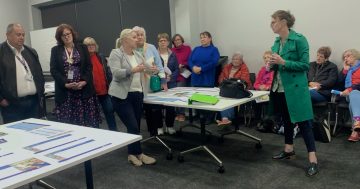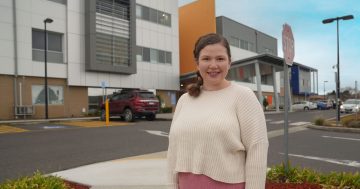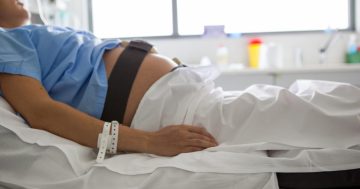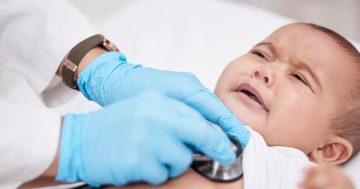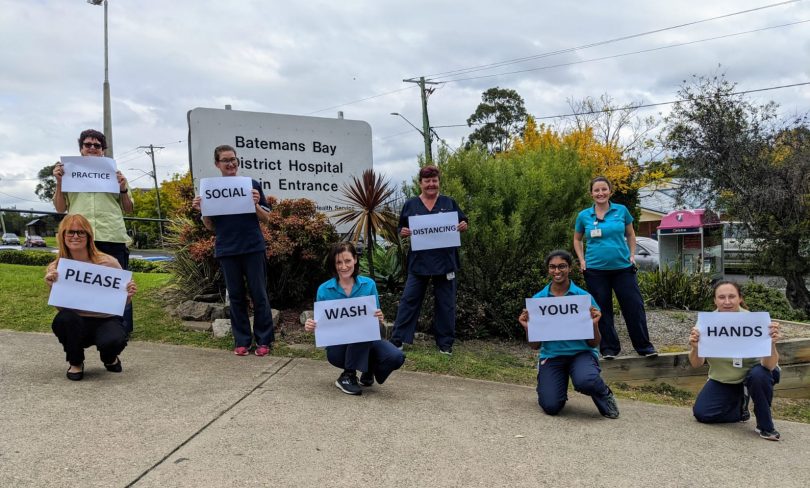
Batemans Bay Hospital medical staff get the message across. Photo: SNSWLHD Facebook.
There are three new cases of COVID-19 in the Southern NSW Local Health District and two more cases in the Murrumbidgee LHD.
“We have confirmed a total of 51 cases of COVID-19 as at 12:00 pm 1 April, 2020, following 1925 tests. The announcement follows recent tests which were verified in the last 24 hours”, a statement from the SNSWLHD says. None of these confirmed cases have required hospitalisation and all are self-isolating.
Diagnoses remain highest in Goulburn, Bega and Eurobodalla, but there are still some districts including Upper Lachlan Shire, centred on Crookwell, where no cases have been confirmed. It’s a similar picture in Murrumbidgee, where the Hilltops region (the former Young, Boorowa and Harden Shires) still has no confirmed cases of COVID-19.
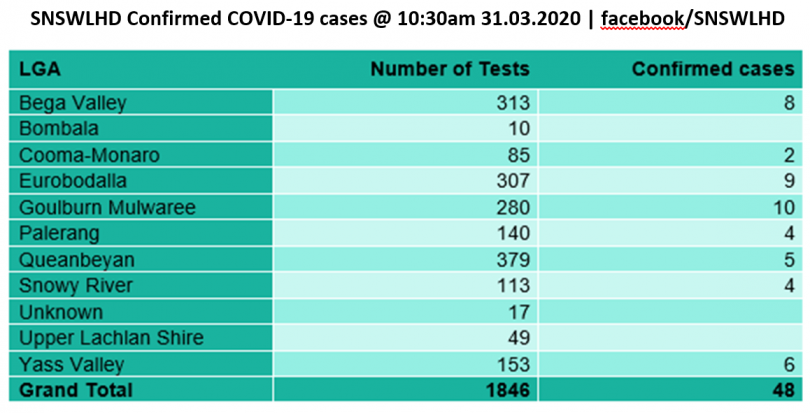
Southern NSW shires are seeing a slow but steady increase in COVID-19 diagnoses. Image: SNSWLHD Facebook.
There have been two additional cases of COVID-19 identified in the Murrumbidgee LHD taking the total number of positive COVID-19 results to 36.
The neighbouring Berrigan and Federation shires, in the NSW/Victorian border region, have both recorded a positive case each in the past 24 hours.
This means that Federation – with the towns of Urana and Corowa – has one of the highest numbers of COVID-19 cases in the MLHD, second only to Wagga Wagga with nine cases, and equaling Albury’s six positive cases.
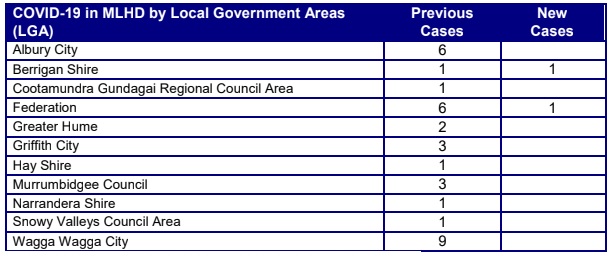
Murrumbidgee LHD is also seeing a rise in confirmed cases. Image: Murrumbidgee LHD.
The MLHD has also confirmed that a total 1749 people have been tested in the region since the outbreak of COVID-19.
The 20 to 29 year age bracket, with 12 cases, still dominates the COVID-19 positive results; eight of them female, four male.
The likely source of infection for the majority of people in the MLHD who have returned positive results is overseas in the instance of 33 cases, two were acquired locally, while one was acquired interstate.
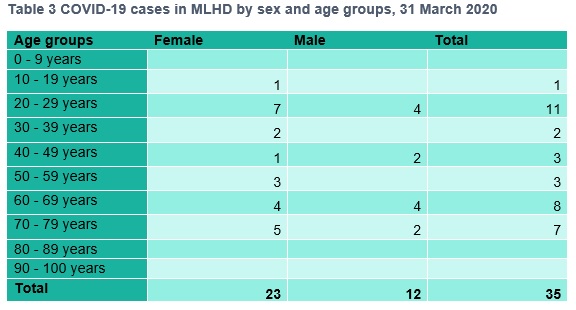
The breakdown by age reveals most diagnoses occur in the 20 – 29 age group. Image: SNSW LHD Facebook.
In the Southern NSW district, 20 to 29-year-olds remain the largest age-group, followed by the older demographics.
While many people are expected to experience mild to moderate symptoms, which can be managed at home with the support of health care workers, those people who experience more serious symptoms will need specialist care in an appropriate local hospital. Base Hospitals are equipped to support people with severe COVID-19 symptoms.
People who are most vulnerable are people over 70, people over 60 with chronic and complex illness, or people with weakened immunity and Aboriginal people with chronic illness.
Members of the public are being asked to remain calm and be vigilant in their hand hygiene and practice social distancing.
Follow the advice given by NSW Health authorities and stay up-to-date with what’s going on via the website.
The most common symptoms of COVID-19 are fever, sore throat and dry cough. Symptoms will generally appear three to four days after exposure to the virus but can be up to 14 days later.
Members of the public are advised to minimise travel, increase personal awareness around hand hygiene and practice social distancing.
Anyone who believes they have may have contracted the COVID-19 virus (ie returned travellers, or those who have come in contact with a confirmed case and are showing symptoms: fever, sore throat, dry cough and shortness of breath) are advised in the first instance to:
- Call the free-call coronavirus hotline 1800 022 222 and receive advice on the best course of action depending on your symptoms and risks. Medical staff will direct people to the nearest hospital or respiratory clinic, or advise them to stay home and self-monitor, or contact their GP, or
- Contact your GP to arrange an appointment (let GP practice know in advance if you have symptoms) or the Southern NSWLHD Central Intake Service – 1800 999 880 (option 1) before attending
- Call the Murrumbidgee COVID-19 Hotline on 1800 831 099 for assessment (7:00 am – 11:00 pm)







